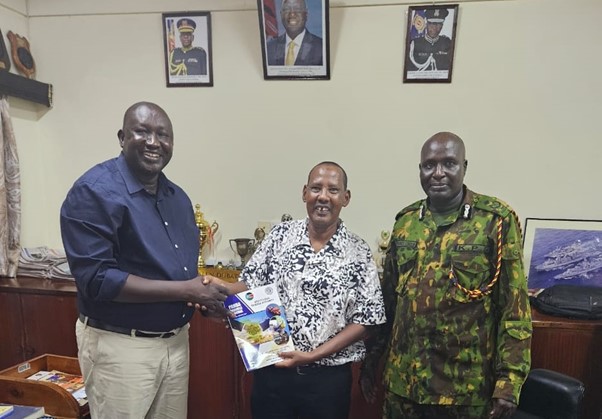South Sudan's English Daily Newspaper
"We Dare where others fear"

By Simon Deng
The Managing Director of Panda Freight, Logistics and Handling International Limited, Emmanuel Kachuol, who also doubles as the head of the South Sudan Freight and Forwarders Association in East Africa, said the biggest problems in transportation and logistics centre on challenges including increased demand and congestion, which lead to delays in supplying goods to South Sudan.
“The industry finds itself at the mercy of the surging demand for faster and more efficient delivery services, unrelenting labour shortages, continued supply chain disruptions, rising fuel costs, and higher customer expectations, but this will be a thing of the past,” said Kachuol on Friday in a statement.
“At Panda, we are proud to be part of this shared journey. One of our key focus areas is the Electronic Cargo Tracking System (RECTS)—a transformative solution that’s modernising how South Sudan manages cargo and collects revenue. This isn’t just a technological shift; it is an economic game changer,” he said.
Kachuol has outlined an in-depth plan of action to streamline the operations of Panda and the association in the country through regional block cooperation for better economic growth and sustainability aimed at putting an end to the problems that have long faced the sector.
“Over the past ten years of actively engaging in the fields of freight, logistics, cargo handling, and statistical data collection across the East African region—particularly within the seaport sector—I have come to deeply understand that business is never static. It is a dynamic, ever-evolving interaction with the future, shaped by shifting trends and emerging technologies,” he said.
Dr. Benjamin Bol Mel, the Vice President for the Economic Cluster, said the government is championing and enhancing connectivity and infrastructural development for South Sudan’s future.
“Transport and infrastructure are at the heart of economic emancipation. Addressing problems in these critical sectors means tackling the real challenges that often impede national growth,” said Mel.
“Currently, East and Central African countries are actively signing bilateral agreements focused on improving infrastructure to boost trade, streamline cargo handling, strengthen security, and enhance regional connectivity. This is a powerful catalyst for expanding national resources—and South Sudan is steadily taking centre stage in this transformative regional movement,” he said.
Dr. Deng Diar Diing, the Executive Secretary of the Northern Corridor Transit and Transport Authority, underscored the critical importance of automating customs systems and ensuring their integration into the East African Community’s Single Customs Territory (SCT) framework.
“The Single Customs Territory allows all member states to communicate and share customs data in real time, enhancing efficiency, transparency, and security in regional trade operations,” said Diing.
Diing noted that global practices in the realm of logistics and cargo handling have seen a dramatic shift from manual operations to digital technologies, adding that cargo movement is electronically tracked and monitored in real time—signalling a transformative era in how goods are managed and secured throughout their journey.
“It is important to note that South Sudan is the second-largest user of the Port of Mombasa, after Uganda—highlighting the strategic significance of inclusive digital integration and regional cooperation,” he said.
In recent years, several issues have contributed to problems with cargo transport to South Sudan, including the introduction of an Electronic Cargo Tracking Note (ECTN), security concerns, and infrastructure deficiencies. These challenges lead to delays, increased costs, and sometimes even the suspension of cargo shipments.
For years, East African Community (EAC) Heads of State have championed the vision of regional unity—encouraging citizens to embrace the immense economic and security benefits that come with regional integration.



